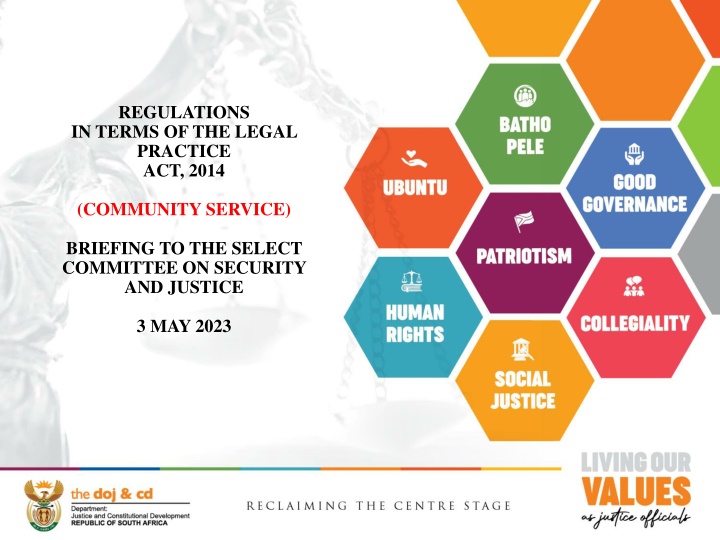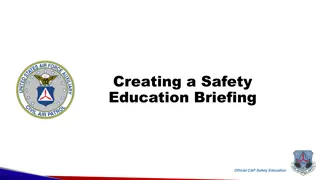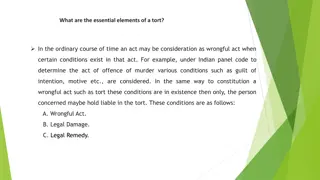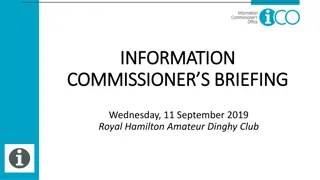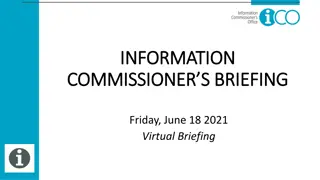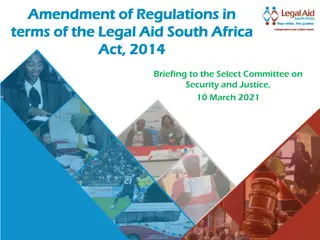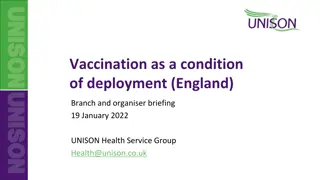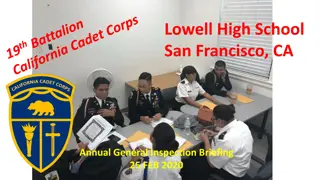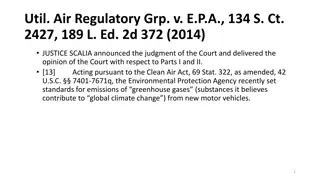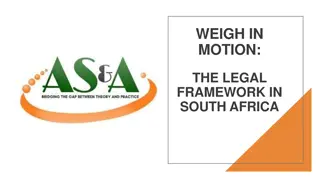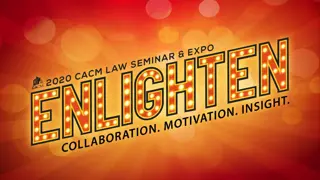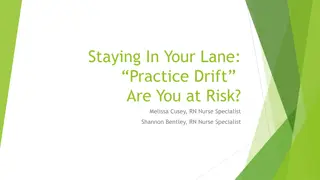Regulations in Terms of the Legal Practice Act, 2014 - Community Service Briefing
The Legal Practice Act, 2014, introduced regulations for community service in the legal profession. Enabling provisions and consultation processes were outlined to ensure effective implementation. Suggestions and feedback from various stakeholders were incorporated to enhance the community service framework for legal practitioners.
Download Presentation

Please find below an Image/Link to download the presentation.
The content on the website is provided AS IS for your information and personal use only. It may not be sold, licensed, or shared on other websites without obtaining consent from the author.If you encounter any issues during the download, it is possible that the publisher has removed the file from their server.
You are allowed to download the files provided on this website for personal or commercial use, subject to the condition that they are used lawfully. All files are the property of their respective owners.
The content on the website is provided AS IS for your information and personal use only. It may not be sold, licensed, or shared on other websites without obtaining consent from the author.
E N D
Presentation Transcript
REGULATIONS IN TERMS OF THE LEGAL PRACTICE ACT, 2014 (COMMUNITY SERVICE) BRIEFING TO THE SELECT COMMITTEE ON SECURITY AND JUSTICE 3 MAY 2023
INTRODUCTION The majority of the sections of the Legal Practice Act, 2014 (Act No. 28 of 2014) ( the Act ) came into operation with effect from 31 October 2018 and 1 November 2018, respectively. The Legal Practice Council ( the Council ) was established. The first Regulations in terms of the Act were published by Government Notice No. R. 921 of 31 August 2018. No Regulations have been made as yet regarding community service.
ENABLING PROVISIONS Section 94(1)(j) of the Act provides for regulations regarding the rendering of community service as contemplated in section 29(1). Section 29(1) provides that the Minister must, after consultation with the Council, prescribe the requirements for community service. Prescribed is defined in section 1 of the Act as prescribed by regulation . Section 29(1)(a) and (b) of the Act provides that community service as a component of practical vocational training by candidate legal practitioners may be required, or that a minimum period of recurring community service by practitioners upon which continued enrolment as a legal practitioner is dependent, may be required. Section 29(2) of the Act lists some possible places where community service can be rendered. Section 29(3) provides that the Council may exempt a candidate legal practitioner or legal practitioner from rendering community service, as set out in the rules made by the Council in terms of section 95(1)(s) of the Act. Any regulations made must, before publication thereof in the Gazette, be tabled in Parliament by the Minister for approval.
CONSULTATION In April 2022, the Minister approved that consultation with roleplayers and interested parties may take place. The most common comments received are discussed below. The Council provided comments dated 20 June 2022 and 30 August 2022, which were incorporated in the draft Regulations. Proposals were made that pro bono or community service should be defined in relation to the client s financial means as well as public interest in a case. The Department s view is that such a provision would lead to a too restrictive community service environment. There were requests that the following be recognised as community service by a service legal practitioner: in forma paupersis instructions from the Registrar; time spent on providing supervision to a candidate legal practitioner of his or her rendering of community service; and training to candidate legal practitioners. The draft Regulations were amended to include this, as all of the above will be to the advantage of the community.
CONSULTATION (cont) The South African Law Reform Commission ( SALRC ) has proposed amendments to section 29 of the Act and these appear to have the support of many attorneys. The proposed amendments provide that service at a Chapter 9 Institution, service at community advice office and service on a pro bono basis be included as forms of community service. Some commentators indicated that the amendments to the Act should first be finalised before the Regulations be proceeded with. The Department does not agree and is of the view that the proposed amendments do not impact on proceeding with the Regulations. The listed options may still be added later on. Some commentators proposed that the regulations should prescribe the form of the certificate of proof of community service rendered. The Department agrees and forms for Certificates were prescribed as new Schedules to the draft Regulations.
CONSULTATION (cont) It was stated that the draft Regulations are not clear on the process to be followed by a candidate legal practitioner or legal practitioner who wishes to rely on excess community service rendered in the previous year. A reference to this aspect was consequently inserted in the prescribed forms in the new Schedules. Several commentators raised a concern regarding the consequence for a candidate or practitioner for non-compliance as the draft Regulations are not clear how this is to be dealt with. It was proposed that a failure should not immediately be tainted by misconduct , and a graduated system should be used. The Department is of the view that the provisions of regulations 4A(8) and 4B(10) draft regulations are sufficient to address this as it provides that professional standards, as provided for in the code of conduct and the rules, will be applicable and non-compliance with the provisions of this regulation must be dealt with by the Council in accordance with the rules.
CONSULTATION (cont) It was pointed out that a practitioner may enter into a contingency fee agreement and may ultimately be remunerated for pro bono time spent and might result in the community service hours for that year being too few. A reference to this aspect was inserted in the newly prescribed Certificates. It was proposed that the payment of annual fees and the submission of a community service certificate should be separate. The draft Regulations were amended to address this. It was proposed that the supervision of a candidate attorney's community service need not be limited to his or her principal. The draft Regulations were amended to address this.
CONSULTATION (cont) It was proposed that a candidate attorney should also be able to comply with his or her obligations by carrying out pro bono services as contemplated by regulation 4B(5) where admitted practitioners are concerned provided these services are supervised by the candidate attorney's principal and/or the admitted attorney to whom the candidate attorney ordinarily reports. The draft Regulations were amended to include this An important issue that was raised by several commentators is the question on what is the process to be followed by the Minister to approve service in the State or other service as provided for by section 29(2)(a) and (e) of the Act. It is pointed out, rightly so, that a cumbersome process that would cause delays could hamper the community service initiative. It is recommended that this aspect be attended to timeously so that the process can be in place, as well as communicated to the profession, when the regulations commence. This matter was referred to the Office of the Solicitor-General, who indicated that they will deal with this matter there are internal engagements to address this.
CONSULTATION (cont) Several proposals were received that pro bono work and community service must be defined. The distinction between pro bono work and community service is not clear and pro bono work should be seen as acceptable community service. Practitioners currently render voluntary pro bono services and there is a need for certainty in the different meanings. The Department agrees with this proposal and adapted the draft Regulations accordingly. Several commentators opined that attention should be given to capacitate existing structures such as Legal Aid South Africa, Public Defenders, etc, which would then make the rendering of community service unnecessary. The Department s response is that section 29 of the Act is peremptory in this respect.
CONSULTATION (cont) It was proposed that the Regulations must include a (non-closed) list of State organs or agencies that are envisaged in section 29(2)(a) of the Act that have been approved or pre-approved by the Minister. The Department is of the opinion that to include a list of approved bodies is unnecessary, as it would require frequent amendments to the Regulations. Section 29(2)(e) does not require the approval to be by regulation, but provides that a list can be determined administratively, which will allow for flexibility and accessibility. Legal Aid South Africa is not in support of community service that is rendered as part of practical vocational training, due to the requirement for continuous supervision which is not possible if such candidate legal practitioner is placed in the service of an institution. This view is noted, however, section 29(1)(a) of the Act is clear in this regard.
CONSULTATION (cont) Some commentators referred to the Legal Sector Code ( LSC ) that will be issued by the Minister of Trade, Industry and Competition in terms of section 9(1) of the Broad-Based Black Economic Empowerment Act, 2003 (Act No. 53 of 2003). The LSC that will come into effect on the date of publication thereof and there were concerns as to how the provisions thereof will align with the community service regulations. Paragraph 6 of the LSC provides for the business case and imperatives. Paragraph 6.5.7 provides as follows: At all relevant and material times, the implementation of the LSC should be underpinned by the following objectives: implementing measures to address the provision and availability of pro bono services and community-based legal services, thus ensuring access to affordable legal services for all people in South Africa, particularly marginalized, poor and rural communities; .
CONSULTATION (cont) Paragraph 33 provides for the means the socio-economic development element ( SED ) scorecard for attorneys and advocates. Targets for pro bono services range from 24 hours to 100 hours per annum, depending on the monetary threshold. Provision is made for legal practitioners who wish to invest monetary contributions instead of pro bono hours. On page 98 it is provided that: The Legal Sector Code Charter Council (to be established by the Minister of Justice) to oversee and implement the LSC, may amend the pro bono hours having regard to any regulations relating to community service that may be promulgated in terms of the Act. . Seeing that the LSC has not been finalized yet and it is unclear when it will be published, it is the Department s view that it should not be taken into account for purposes of these Regulations.
PROPOSED DRAFT REGULATIONS Regulation 1 of the draft Regulations defines the Regulations . Regulation 2 of the draft Regulations inserts references to the new regulations and new Certificates in the Classification of the Regulations. Regulation 3 of the draft Regulations inserts new regulations 4A and 4B. Regulation 4A provides for the rendering of community service by candidate legal practitioners. Regulation 4A(1)(a) and (b) define community service and pro bono services . Regulation 4A(2) provides that candidate legal practitioners must render eight hours per annum community service. (The service will have to be rendered at the institutions referred to in section 29(2) of the Act or at the institutions as approved by the Minister.
PROPOSED DRAFT REGULATIONS (cont) As section 29(2)(a) and (e) of the Act provide that the Minister may administratively approve where community service may be rendered, it is not advisable to specifically list the places in the Regulations, as changing circumstances would require a lengthy and costly amendment of thereof.) Regulation 4A(3) provides for pro rata service, if service as a candidate legal practitioner commences during the course of a calendar year. Regulation 4A(4) provides that the period of community service may be intermittent or continuous. Regulation 4A(5) provides that extra hours of community service rendered may be carried forward as credits for the next calendar year. Regulation 4A(6) provides that pro bono services rendered will be recognised as community service.
PROPOSED DRAFT REGULATIONS (cont) Regulation 4A(7) provides that the service rendered must be supervised by the principals or engaging advocates. Regulation 4A(8) provides that professional standards as provided for in the code of conduct and the LPC s rules will apply. Regulation 4A(9) provides that candidate legal practitioners must, after completion of the period of practical vocational training, submit to the LPC one or more certificates signed by their principals or engaging advocates, as confirmation that community service has been rendered. The form of the Certificate is prescribed as Annexure C to the Regulations. Regulation 4B provides for the rendering of community service by legal practitioners. Regulation 4B(1)(a) and (b) define community service and pro bonoservices .
PROPOSED DRAFT REGULATIONS (cont) Regulation 4B(2) provides that practising legal practitioners must render 40 hours per annum community service. (The service must be rendered at the institutions referred to in section 29(2) of the Act or at the institutions Regulation 4B(3) provides for pro rata service of three hours per month, if service as a practitioner commences during the course of a year. Regulation 4B(4) provides that service may be intermittent or continuous. Regulation 4B(5) provides that extra hours of community service rendered in any year may be carried forward as credits for the next year. Regulation 4B(6) provides that pro bono services rendered will be recognised as community service.
PROPOSED DRAFT REGULATIONS (cont) Regulation 4B(7), (8) and (9) provide that the following will be regarded as community service: In forma pauperis instructions from a registrar of a Division of the High Court, time spent on providing supervision to a candidate legal practitioner who is rendering community service and any lectures or training presented to candidate legal practitioners by legal practitioners at no charge and with no remuneration. Regulation 4B(10) provides that professional standards as provided for in the code of conduct and the LPC s rules will apply. Regulation 4B(11) provides that practising legal practitioners must submit to the LPC annually, when making payments for annual subscriptions, one or more certificates signed by the recipients of the community service, as confirmation of services rendered. The form of the Certificate is prescribed as Annexure D to the Regulations.
GENERAL The Regulations were checked by the Office of the Chief State Law Adviser, who proposed technical amendments that were effected. The Presidency: Policy and Research exempted the Department from conducting a Socio-Economic Impact Assessment on the amendment regulations.
End of presentation Thank you
